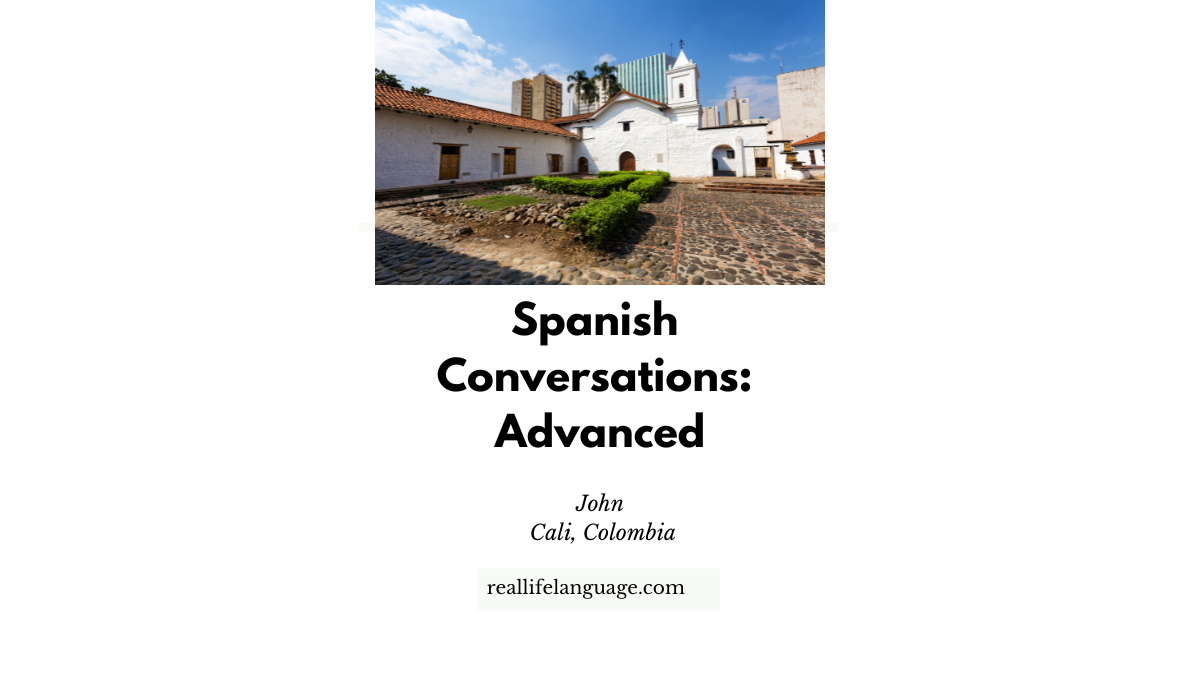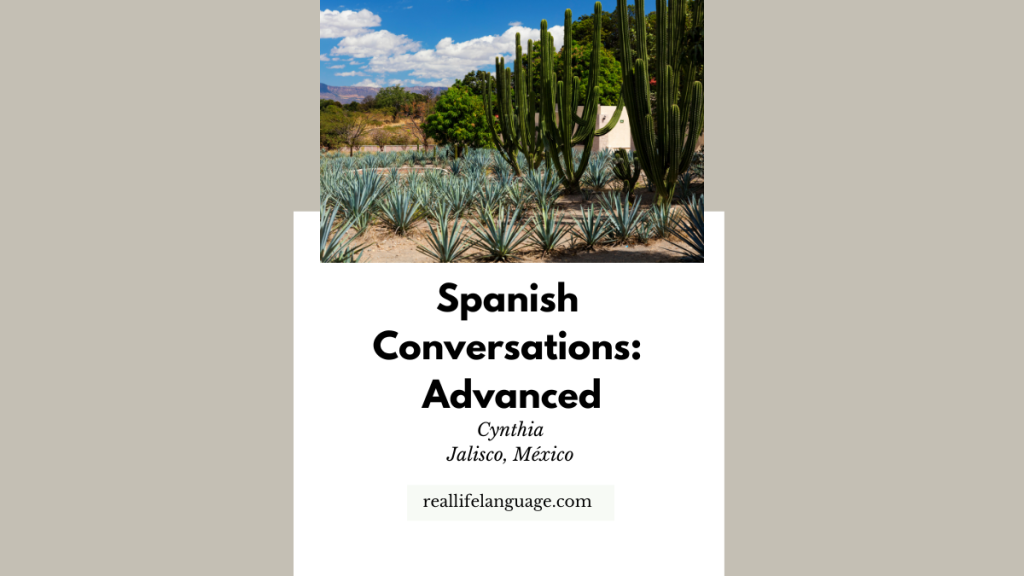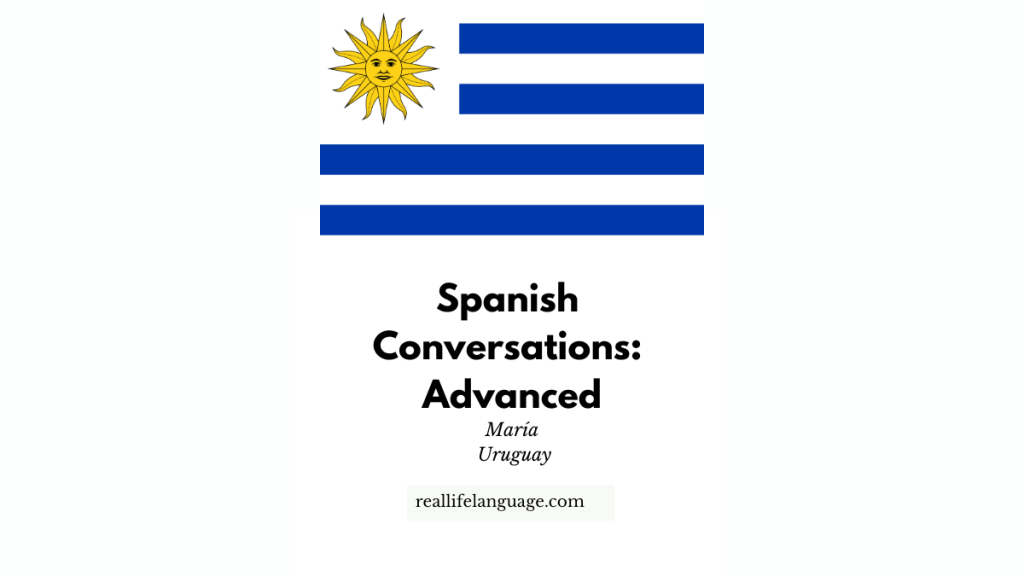
This article summarises an in-depth interview with a speaker from Cali, Colombia, designed to help learners who want to learn advanced Spanish through authentic conversation. The interview covers daily life, teaching, gender roles, the economy, housing, education, parties, leisure, food, global news and family life. Readers will find cultural insights, key vocabulary and ready-to-use phrases to practise Spanish at a higher level.
Overview: why this conversation helps you learn advanced Spanish
The interviewee reflects on teaching, social change and everyday Colombian life in a conversational, reflective tone. For learners who want to learn advanced Spanish, listening to or reading material like this helps with comprehension, idiomatic expressions and cultural context. The speaker often switches between descriptive storytelling and short, natural phrases, which is excellent practice for intermediate and advanced learners ready to expand vocabulary and fluency.
Life and teaching: play, adults and lifelong learning
The interviewee explains how teaching adults has been a rewarding discovery: “play is like the way that children learn much more easily and naturally,” and adults learn more when lessons include games. A clear tip emerges: to learn advanced Spanish, incorporate play—board games, role-plays and fun activities—to make complex grammar and vocabulary stick.
Practical takeaway: use board games and simple role-play scenarios (shopping, job interviews, family conversations) to practise high-frequency verbs and advanced connectors in context.
Women and social change
Discussion about gender highlights gradual improvements in opportunities for women. The speaker notes that many leadership roles in education are already held by women, despite broader inequities in access to leadership. This offers rich conversational material for advanced learners: discussing statistics, social change and policy requires connectors and nuance—an excellent way to practise subjunctive moods and conditional structures.
Useful phrases to discuss social change
- Las puertas se están abriendo para las mujeres en muchos sectores.
- Es necesario mejorar la equidad en el acceso a oportunidades.
- Si hubiera más políticas públicas de apoyo, la situación sería distinta.
Economy and recent national strike
The speaker describes a recent economic crisis and a national strike sparked by rising prices and competition from imported goods. Roads were blocked, food supplies were delayed and there was a shortage in cities. Advanced conversation practice here includes explaining causes and effects, using past tenses and reported speech.
Key vocabulary: paro nacional (national strike), precios (prices), importaciones (imports), escasez (shortage), campesinos (rural producers).
Housing and social strata
Housing in Colombia is a mix of houses and apartments. The interviewee explains the concept of “estrato” (socioeconomic strata) and how access to housing often depends on income and state credit programs for workers. This is useful material for learners working on socio-economic vocabulary and conditional sentences.
Example sentence
Muchas familias de estrato bajo viven en arriendo hasta que consiguen subsidios o créditos para comprar una casa.
Education: public vs private and access issues
Education is partly subsidised but not completely free. The speaker compares well-funded private schools and under-resourced public schools, noting the gap in opportunities and the problem of school dropouts in disadvantaged neighbourhoods. For learners, this section offers chances to practise comparative language, expressions of inequality and vocabulary like deserción escolar (school dropout) and becas (scholarships).
Parties, leisure and traditions
Colombian celebrations blend family time with music and food. For children’s parties there are piñatas, food and separate spaces where adults also share music and drinks. A traditional drink mentioned is aguardiente, often taken neat with a slice of lime or a splash of water.
Leisure on weekends is highly family-oriented: visits to shopping centres, riverside picnics with sancocho (a hearty soup) and communal cooking. Learners can use these cultural topics to practise narrative tenses and descriptive vocabulary.
Food: regional dishes and coffee culture
Colombia’s regional diversity appears strongly in its cuisine. Coffee (tinto) is central—taken throughout the day. Typical dishes mentioned include:
- Bandeja paisa — a large plate with rice, beans, chicharrón, plantain, avocado, egg and chorizo.
- Sancocho — a comforting soup with tubers and meat, common at family gatherings by the river.
- Ajiaco — a creamy chicken soup from Bogotá, flavoured with a particular local herb (guascas).
- Cazuela de mariscos — a creamy seafood casserole typical of the Pacific coast.
Food vocabulary and sensory descriptions are great for advanced learners to practise adjectives, comparatives and culinary verbs (picar, hervir, sazonar).
Global news, power and concerns
The speaker expresses worry about global leaders and the persistence of power-seeking behaviour that harms ordinary people. This section is useful for practising argumentative language and giving opinions in Spanish with structures like “me preocupa que…” and the subjunctive.
Family, parenting and social policy
The interviewee ties family support to broader social outcomes: strong family policies help prepare future citizens. They argue that governments should create policies that support diverse family structures, including single parents. Advanced learners can practise conditional and hypothetical statements about public policy and family life.
Pandemic reflections
The pandemic brought mixed emotions. For the speaker, it coincided with the birth of a child—creating anxiety but also precious time at home to bond with family. This personal account is ideal for practising past tenses (pretérito and imperfect), reflexive pronouns and expressions of emotion.
Practical Spanish: vocabulary and phrases from the interview
Below are useful words and ready-made phrases for learners who want to learn advanced Spanish and use what they study in conversations like this one.
- jugar — to play. Example: “Los adultos también aprenden jugando.” (Adults also learn by playing.)
- tinto — black coffee. Example: “Empezamos el día con un tinto.” (We start the day with a black coffee.)
- aguardiente — a traditional alcoholic drink. Example: “El aguardiente se toma con limón.” (Aguardiente is taken with lime.)
- sancocho — traditional soup. Example: “Prepararon un sancocho para la familia.” (They prepared a sancocho for the family.)
- estrato — socioeconomic stratum. Example: “El estrato influye en los recursos disponibles.” (The stratum influences available resources.)
- paro nacional — national strike. Example: “El paro nacional afectó el abastecimiento de alimentos.” (The strike affected food supply.)
- deserción escolar — school dropout. Example: “La deserción escolar es un desafío en barrios vulnerables.” (School dropout is a challenge in vulnerable neighbourhoods.)
How to practise with this material
- Listen to the conversation and take notes on new vocabulary. Pause and repeat sentences to work on pronunciation and intonation.
- Recreate sections of the interview as role-plays: one student plays the interviewer, another the interviewee. Use the vocabulary list to enrich answers.
- Write a short essay or opinion piece using the topics: education, housing, food and family. Use advanced connectors (aunque, sin embargo, por lo tanto) and practise the subjunctive for opinions and doubts.
- Play or adapt a board game in Spanish to practise target vocabulary in a playful, contextualised way—this mirrors the speaker’s recommendation to learn through games.
Conclusion
The interview from Cali offers authentic conversational material that helps learners who want to learn advanced Spanish. It combines cultural insight with practical vocabulary and real-life examples—perfect for listening, speaking and writing practice. Use the strategies above to turn the interview into active learning: role-play scenes, expand vocabulary, and write opinion pieces based on the topics discussed.
To deepen practice, watch the full interview video and repeat the exercises: listening repeatedly, imitating pronunciation and using the vocabulary in your own sentences will accelerate progress for anyone who wants to learn advanced Spanish.
100s of videos to learn Spanish:

